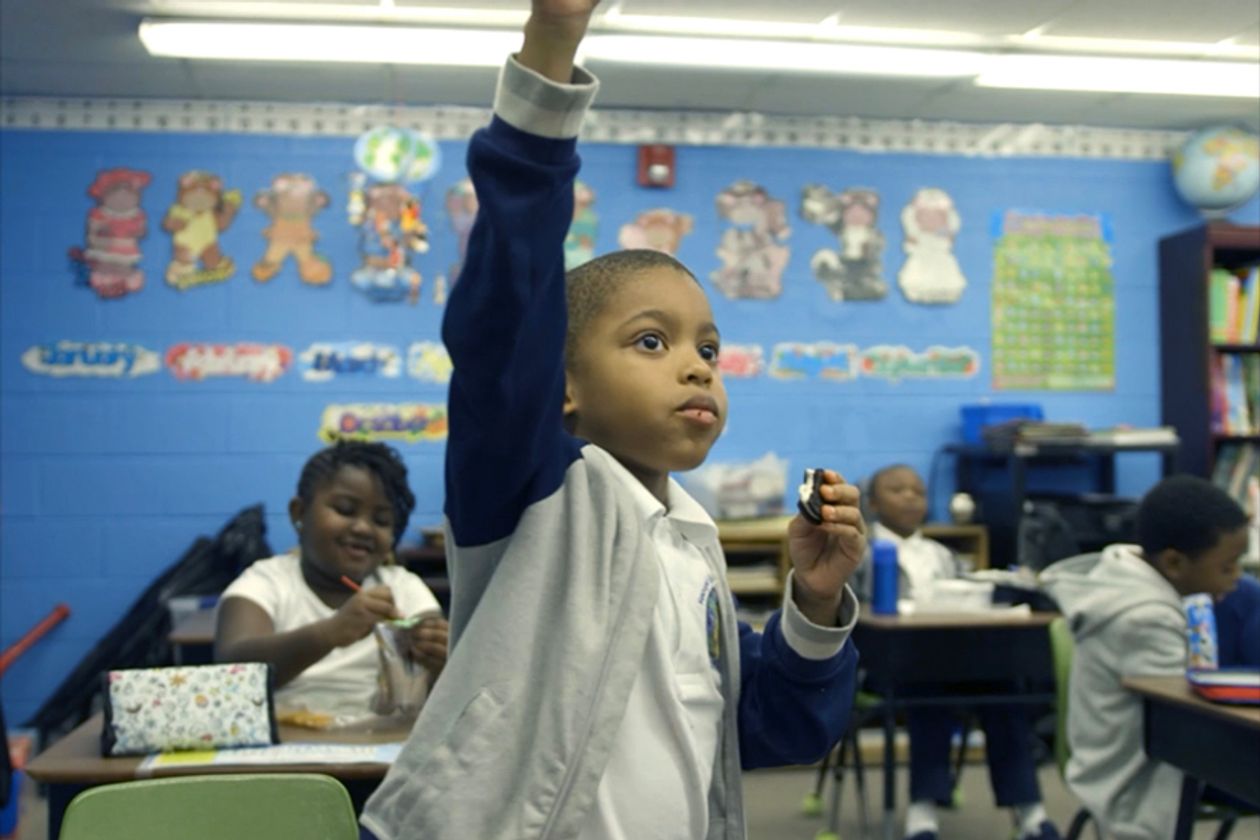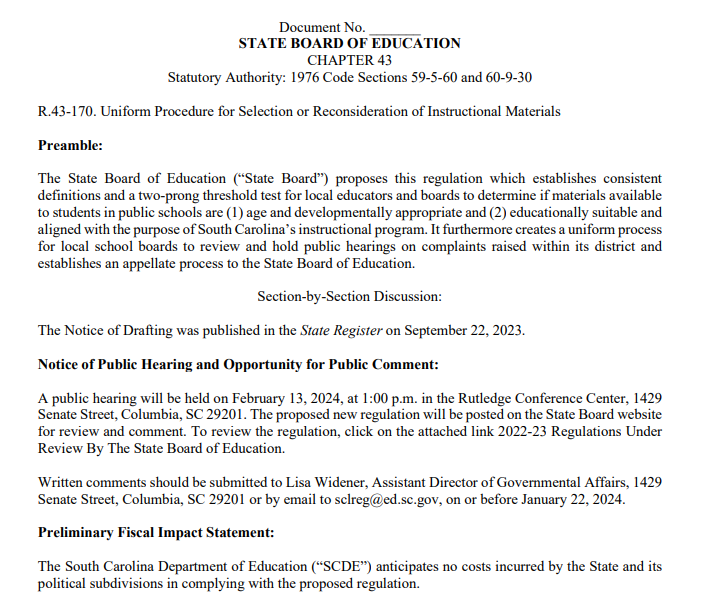Minority Students in South Carolina’s Education System
Randi Weingarten, President of American Federation of Teachers (AFT), has been in the news recently after condemning the school choice movement as a movement born from “racism, sexism, classism, xenophobia and homophobia.” She went on to remark that school choice initiatives are “only slightly more polite cousins of segregation.”
Backlash to her remarks was swift and forceful.
The74‘s article, Advocates Push back on Weingarten chronicles the outcry.
In it, Kevin Chavous, a widely-known national education choice advocate responded: “The hypocrisy that’s coming out of the mouth of Randi Weingarten reeks. In her comments she spat on the face of every African-American and Hispanic child who’s trapped in a school that doesn’t serve them well.”[i]
Marquette University Professor and president of the Black Alliance for Educational Options, Howard Fuller, also replied, arguing, “This is about power and control. The fact of the matter is Randi is doing what she can do so that the people she represents can maintain control and power over a system.”[ii]
“The system that Randi advocates for is actually the biggest, most pernicious engine of segregation in American culture. Period,” Derrell Bradford, executive vice president 50CAN told The 74.[iii]
If Weingarten believes that American public schools are the only appropriate place for students to learn, she should examine South Carolina’s current education record. Each year, statewide assessments like SC READY and SC PASS gauge the outcomes of South Carolina’s public education system. Here are the results:
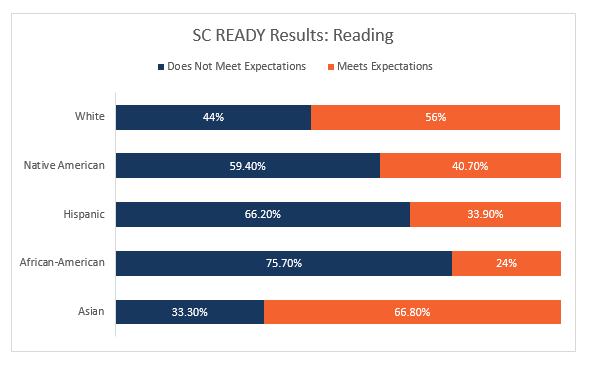
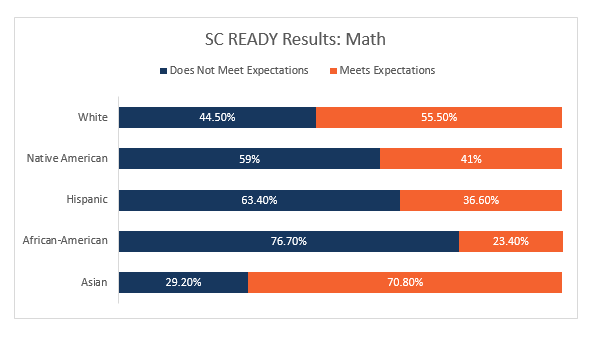
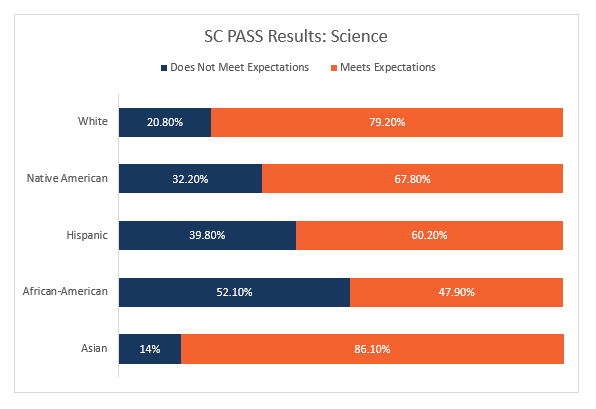
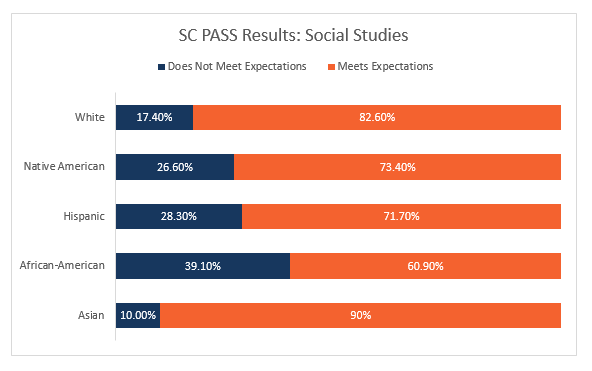
“Choice” isn’t to blame for these results in South Carolina’s public schools. In fact, in Allendale County, South Carolina, where 73.8% of the population is African American and public schools are the only option for students, only 15.8% of students met state expectations in Reading, English, Math and Writing last year. The average composite ACT score for Allendale County students in 2016 was 12.9 – the lowest in the state. (And all this despite the fact that the total education dollars spent per student in Allendale was $17,185, well above the statewide average of $12,696.[iv])
The fact is, states like Florida – which has the largest school choice programs in the nation – have proven time and again that public school performance and school integration actually IMPROVES when school choice is a strong part of the education equation.
So instead of blaming the persistent achievement gap experience by minority students on school choice, Ms. Weingarten should be thanking reformers like Kevin Chavous, Howard Fuller and Derrelle Bradford who refuse to stand by while the next generation of American children have the door of education opportunity slammed closed in their face.
[i] Phenicie, Carolyn. “’This Is About Power and Control’: Advocates Push Back on Weingarten for Linking School Choice to Segregation.” The74, The74, 24 July 2017, www.the74million.org/article/this-is-about-power-and-control-advocates-push-back-on-weingarten-for-linking-school-choice-to-segregation.
[ii] Phenicie, Carolyn. “This is About Power and Control”
[iii] Ibid.
[iv] SC Department of Revenue and Fiscal Affairs

